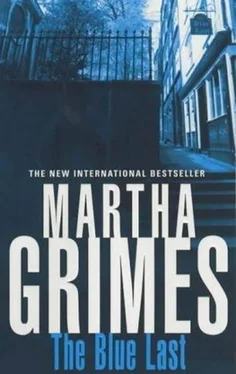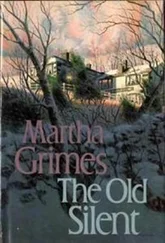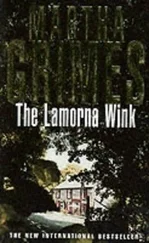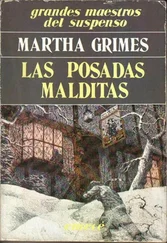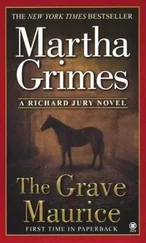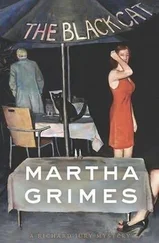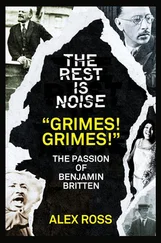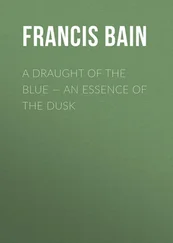Martha Grimes - The Blue Last
Здесь есть возможность читать онлайн «Martha Grimes - The Blue Last» весь текст электронной книги совершенно бесплатно (целиком полную версию без сокращений). В некоторых случаях можно слушать аудио, скачать через торрент в формате fb2 и присутствует краткое содержание. Жанр: Детектив, на английском языке. Описание произведения, (предисловие) а так же отзывы посетителей доступны на портале библиотеки ЛибКат.
- Название:The Blue Last
- Автор:
- Жанр:
- Год:неизвестен
- ISBN:нет данных
- Рейтинг книги:3 / 5. Голосов: 1
-
Избранное:Добавить в избранное
- Отзывы:
-
Ваша оценка:
- 60
- 1
- 2
- 3
- 4
- 5
The Blue Last: краткое содержание, описание и аннотация
Предлагаем к чтению аннотацию, описание, краткое содержание или предисловие (зависит от того, что написал сам автор книги «The Blue Last»). Если вы не нашли необходимую информацию о книге — напишите в комментариях, мы постараемся отыскать её.
The Blue Last — читать онлайн бесплатно полную книгу (весь текст) целиком
Ниже представлен текст книги, разбитый по страницам. Система сохранения места последней прочитанной страницы, позволяет с удобством читать онлайн бесплатно книгу «The Blue Last», без необходимости каждый раз заново искать на чём Вы остановились. Поставьте закладку, и сможете в любой момент перейти на страницу, на которой закончили чтение.
Интервал:
Закладка:
Wiggins looked at the last document he had put in his pile and removed it. He removed the one underneath, too. Too early. Night had fallen around five P.M.
They were looking at documents in the registry office at Somerset House. There were tons of them it looked like, judging from box after box on shelf after shelf. The clerk they’d found and dragged down here to open the place hadn’t been happy. “It’s Christmas, after all.”
“Yes, sir,” said Wiggins. “But I could use some hot-” He raised his paper cup of cooling tea.
Jury nodded. “Go ahead.” Wiggins left Somerset House for the kiosk out on the pavement, its owner keeping the canteen full even on Christmas morning. “Some people,” he had said when Wiggins expressed surprise at this diligence, “still gotta push the envelope, well, look at you lot.”
“Push the envelope? Been too many American CEOs hanging about his tea canteen,” said Jury, as he added another certificate to the stack before him. There must have been three dozen here. He winnowed out several as having been born too early in the day for the fireworks. It was amazing how many children seemed to be born all of the time. He was looking only at babies born after five P.M. Staggering, really.
“Here’s something, sir. Baby girl, Olivia-” Wiggins paused in surprise.
“What?”
“The baby’s name here is given as Olivia Croft.”
Jury snatched the paper out of Wiggins’s hands. “That’s a turn-up, that is. Croft.” He continued reading. “Born eight P.M., November 5, 1939. At a place called Chewley Hill. It’s near Princes Risborough in the Chilterns. Call the place, will you? Tell them I’m on my way. Tell them who it’s about. And when they say, ‘But it’s Christmas !’ just pretend you didn’t know.”
“But, it is Christmas, sir!”
Jury was shoving his arms into his coat. “Could’ve fooled me. Do that, Wiggins, then get the hell out of town and on your way to Manchester.” Out the door, Jury came back. “And thanks, Wiggins. Happy Christmas.”
“And to you, sir.”
Chewley Hill, both house and hill, sat at the edge of the Chilterns in a winter light that lent the surroundings a dreamy quality. The ambient light informed the surrounding fields and the bell tower of the church in the town below as if nothing too bright, too harsh should disturb the house’s serenity-hard won, Jury would say.
He stood in a galleried hall, looking up the gracefully arcing staircase on both sides and thought that any young woman with the means to come here should feel lucky-though, of course, she wouldn’t. Two very pregnant young ladies (girls, really) standing near the stairwell with their heads together and giggling looked his way. He smiled. Surely, they’d had enough of flirting for the time being, hadn’t they?
That the woman who had headed up this tastefully appointed house in 1939 was still heading it up struck Jury as little more than miraculous. Miss Judy Heron did too, and she enjoyed the miracle. “Fifty-five years, Superintendent. I was twenty-four back then and I’m seventy-nine now.
I’m very fortunate and so, I think, is Chewley, having that kind of continuity. No, you could say there’s little turnover in help here.” She smiled.
So did Jury. “I can see why, Miss Heron.” He felt the name suited her, for she struck Jury as some tall, thin, graceful wading bird, slow moving and delicate. The unhurried movement was not a sign of her advanced years, but more one of temperament. He could see her even at twenty-four moving in this same, underwater way. She was a calm and calming presence. And so was this room, with its mingling of easy chairs and antique settee, its wall of books, its pale gray walls and warming fire. Even time passed effortlessly, softly ticked away by the longcase clock near the window.
“Sometimes I regret that these girls do not come back to visit. But it’s not an experience one cares to be reminded of, I expect. An unwanted pregnancy is a very sad thing. It was then, and it is now. In spite of all the new freedom that women enjoy, there are some heartbreaks that never change, never.”
“That’s what you find it to be?”
“Of course.”
“I don’t know, Miss Heron. The two women I saw out there looked pretty much to be taking pregnancy in their stride.”
“I’m glad. It won’t last long. That will end when their babies are born and they have to give them up. It’s emotionally devastating. Frankly, I favor abortion.”
Jury tried to mask his shock, but didn’t manage it. “You? But-”
She smiled. “You’d think just the opposite, because I run this house? That’s rather sanctimonious of you, Superintendent. Abortion as an issue is beyond the means of common morality to penetrate, I think. Oh, common morality is necessary of course. But it’s an abstraction. If you saw, time after time, the effect giving up her child has on a young woman, you might agree with me.” She looked sadly around her office, more a drawing room with a desk. She sat behind it, surrounded by neat stacks of paper and a folder positioned on the blotter beneath her hands. “I’m sorry for going on. How can I help you? You said-or, rather, your sergeant did-that you were on a case that had to do with the Tynedale family. Alexandra’s family.”
“That’s right. It’s a homicide. A man named Simon Croft.” He waited for her to react to the name.
“Croft.” She looked at him. “I thought she’d just chosen the name out of the clear blue. I see not. Olivia was the baby’s first name. The couple who adopted the baby probably changed her first name as well as her last. They often do that; I expect it makes them feel a bit more like her real parents.”
Jury waited.
She was silent; then she said, “Superintendent, you can understand that I wouldn’t want to break faith with these young women-”
“Something broke faith long ago, Miss Heron. The war did. Alexandra was killed in the London blitz.”
“I know, yes, I know.”
Jury supposed she had a battery of lawyers beamed in her direction, but they probably wouldn’t get far when the confidentiality angle was obstructing the investigation of a homicide. He thought she probably was considering this.
He sat regarding her for a moment and then nodded toward the folder her arms were crossed over. “Is that Alexandra’s file?”
“Yes.”
They looked at each other while the clock ticked softly. It occurred to Jury that her eyes were as intelligent as any he had ever seen and he thought then of Emily Croft. They were much alike. Jury cocked his head. “You’ve spoken to the parents already, haven’t you?”
“Olivia’s adoptive parents are dead. But there is an aunt. I felt I should alert her to the possibility of your going there. I do hope that’s not stealing New Scotland Yard’s thunder?”
Jury laughed. “Thunder is in short supply, believe me.”
She smiled and handed him the folder. “The parents’ name, and also the aunt’s, is Woburn, Elizabeth Woburn. She lives in Chipping Camden. The Woburns, Alice and Samuel, lived there also. There is really little else I can tell you.” She handed him the file. “But I expect Elizabeth Woburn can tell you a great deal more. She’s expecting your call.”
“Thank you.” Jury opened the file and looked at the one page.
Judy Heron nodded. “You may keep that, Superintendent. After your sergeant called, I made you a copy.”
He grinned. “God, you certainly do anticipate, Miss Heron.”
“I know. It’s a faculty I’ve developed over the years. I deal largely with overwrought people. You can infer that these young women are hardly jubilant when they come here. It’s such a pity to be a mother and not be able to feel good about it.” She looked at Jury. “Couldn’t you get by without knowing the ending, Superintendent?”
Читать дальшеИнтервал:
Закладка:
Похожие книги на «The Blue Last»
Представляем Вашему вниманию похожие книги на «The Blue Last» списком для выбора. Мы отобрали схожую по названию и смыслу литературу в надежде предоставить читателям больше вариантов отыскать новые, интересные, ещё непрочитанные произведения.
Обсуждение, отзывы о книге «The Blue Last» и просто собственные мнения читателей. Оставьте ваши комментарии, напишите, что Вы думаете о произведении, его смысле или главных героях. Укажите что конкретно понравилось, а что нет, и почему Вы так считаете.
